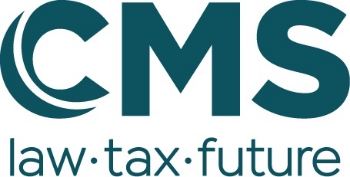In The Chartered Institute of Arbitrators v B and others [2019] EWHC 460 (Comm), the Commercial Court allowed a non-party to gain access to court documents that were used in proceedings to remove an arbitrator. What makes this case particularly interesting is that arbitration proceedings ordinarily give rise to an obligation of confidentiality.
Background
B was appointed as an arbitrator in a dispute between C and D. An issue later arose as to B’s impartiality. C successfully applied to the court to remove him under section 24 of the Arbitration Act 1996 (Cofley Limited v Anthony Bingham and Knowles Limited [2016] EWHC 240 (Comm)). The Chartered Institute of Arbitrators (CIArb) then brought disciplinary charges against B, alleging amongst other matters that he had failed to disclose interests affecting his impartiality, conducted a meeting inappropriately and questioned counsel in an aggressive or hostile manner. CIArb applied to the court for copies of the documents which had been filed in the removal application - including statements of case, witness statements and exhibits, skeleton arguments, transcripts of the arbitral proceedings, and correspondence that had been read out in open court - and for permission to rely on the documents in its proceedings. C consented to the application, and D took no position. B objected on the grounds that the arbitration proceedings were confidential.
Exercise of discretion and legitimate interest
The Commercial Court held that the CIArb was entitled to copies of the statements of case as of right under Civil Procedure Rule 5.4C. However, the remaining categories were a matter of discretion for the court. Moulder J referred to the requirement reiterated in Cape Intermediate Holdings Ltd v Dring [2018] EWCA Civ 1795 that the applicant must have a “legitimate interest” in inspecting the documents. She concluded that CIArb was seeking copies of the documents for a legitimate purpose, namely to provide an independent and impartial disciplinary procedure for its members, which was in the public interest. The court had to balance that interest against B's private interest in preserving his confidentiality and against any possible damage to other parties.
The judge noted the statement in Glidepath BV v Thompson [2005] EWHC 818 (Comm) that a court may order disclosure of documents generated in an arbitration when it is reasonably necessary in the interest of justice. She concluded that the charges were based on B’s conduct in the arbitral proceedings and surrounding correspondence, and it would therefore be impossible for CIArb to proceed without access to the transcripts and correspondence. It was also in the interests of justice for the witness statements and exhibits to be available to assist the disciplinary tribunal. They were already in the public domain as a result of their use at trial, and the tribunal could avoid any further damage to the confidentiality rights of B or other parties by sitting in private to the extent necessary.
However, since the charges were not based upon the arguments presented in the removal proceedings or upon the judge’s findings in those proceedings, it was not necessary for CIArb to have access to the skeleton arguments.
Comment
This case demonstrates the tension between the duty of confidentiality in arbitral proceedings and a non-party’s legitimate interest in documents. In holding that CIArb should be granted access to the majority of the documents it sought, the judge highlighted “the general public interest in maintaining the quality of and standards of arbitrators". Public interest is therefore regarded as a sufficiently important consideration to justify erosion of the general rule of arbitral confidentiality. In general, however, this should not give rise to undue concern on the part of businesses that are considering using arbitration; the contents of the documents which were disclosed to CIArb were already largely in the public domain due to their use at trial.
The authors would like to acknowledge the assistance of Kiana Banafshe, intern at CMS London, in preparing this article.




